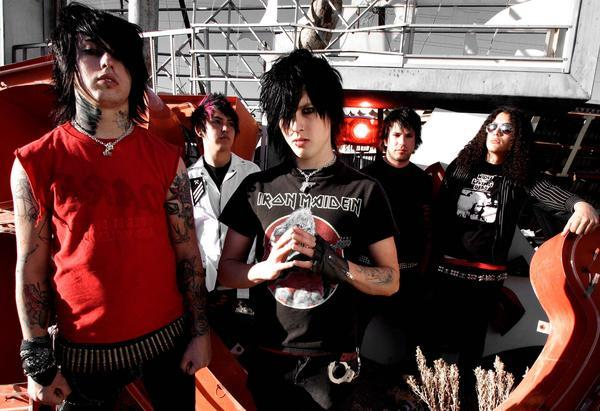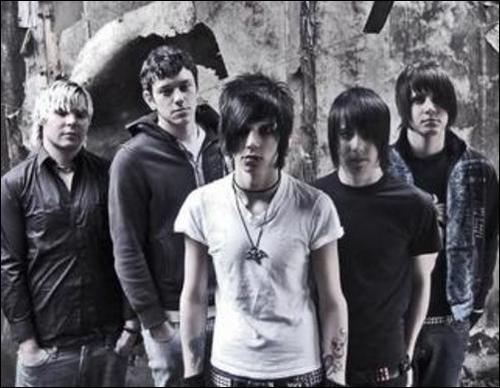
Saudis Rebuff Bush on Oil Output Request
Saudi Arabia's leaders made clear Friday they see no reason to increase oil production until customers demand it, apparently rebuffing President Bush amid soaring U.S. gasoline prices.
It was Bush's second personal appeal this year to King Abdullah, head of the monarchy that rules this desert kingdom that is a longtime prime U.S. ally and home to the world's largest oil reserves. But Saudi officials stuck to their position that they will only pump more oil into the system when asked to by buyers, something they say is not happening now, the president's national security adviser told reporters.
"Saudi Arabia does not have customers that are making requests for oil that they are not able to satisfy," Stephen Hadley said on a day when oil prices rose above $127 a barrel, a record high. "What the Saudis wanted to tell us was we're doing everything we can do ... to meet this problem, but it's a complicated problem."
The Saudi oil minister, Ali al-Naimi, announced that the kingdom decided on May 10 to raise production by 300,000 barrels at the request of customers, including the United States. He said that increase was sufficient.
"Supply and demand are in balance today," he told a news conference. "How much does Saudi Arabia need to do to satisfy people who are questioning our oil practices and policies?"
Bernard Picchi, an energy analyst at Wall Street Access, an independent research firm, said the 300,000-barrel Saudi production increase was "a token amount" that is not expected to have much impact on prices.
It would be different, he said, if Saudi Arabia boosted production by 1 million or 1.5 million barrels a day. The announced increase will have Saudi Arabia pumping 9.45 million barrels a day by June, Saudi officials said. That's about 2 million barrels below its capacity.
Oil prices advanced Friday as traders, unimpressed by efforts to boost supply, kept buying on the expectation that prices would keep setting new records.
Saudi Arabia often adjusts its output to meet demand, and the increase coincides with the start of the peak driving season in the U.S. "It's a way to raise production without raising production," said Phil Flynn, analyst at Alaron Trading Corp. "I think it was a way to save face."
Hadley never mentioned the Saudi's new production in his recap with reporters. He said the Saudis briefed Bush again on their plan to increase their production capacity over time. They also argued that even an increase would be unlikely to bring down the soaring prices, driven more by uncertainty in the market, lack of refining capacity for the type of oil readily available and other complicated dynamics, he said.
Economists say prices are being driven up by increased demand, not slowed production. Energy-guzzlers China and India are stretching supplies.
As a result, Hadley suggested the White House was satisfied with - or at least accepted - the Saudi response. He added, however, the Bush administration will see if the explanation "conforms to what our experts say."
Saudi Foreign Minister Saud al-Faisal said the discussion with Bush about oil was friendly. "He didn't punch any tables or shout at anybody," the minister said. "I think he was satisfied."
High energy costs are a major drain on the U.S. economy, which is experiencing a slowdown that some think is already a recession. At the pump, gas prices rose to a national average of $3.78 per gallon on Friday, according to a survey of stations by AAA and the Oil Price Information Service.
When Bush and Abdullah met in the kingdom in mid-January, the president also sought more Saudi output in a plea that also ultimately was for naught.
Iran was the other dominant topic of Bush's overnight visit with the king.
The two shared a concern over the recent violence in Lebanon, where Hezbollah overran Beirut neighborhoods last week in protest of measures aimed at the group by the country's government. The display of military power by the Shiite militant group, which the U.S. considers a terrorist organization, resulted in the worst internal fighting since the end of Lebanon's 1975-90 civil war.
With Shiite-dominated Iran backing Hezbollah, Sunni-dominated Saudi Arabia - eager to stop any advance of regional power by Tehran - joins the West in supporting Lebanon's government. Hadley said Bush and Abdullah shared a concern that the recent events would "embolden Iran." The U.S. and Saudi Arabia, he said, "are of one mind in condemning what Hezbollah did."
On Thursday, Hezbollah and the government reached a deal to end the violence after Lebanon's Cabinet reversed measures aimed at reining in the militants.
Bush's Saudi stop was intended, in part, to celebrate 75 years of formal U.S.-Saudi relations and strengthen ties that, once strong, have frayed over the perception Washington favors Israel too much in the dispute with the Palestinians, the Iraq war and the Sept. 11, 2001 attacks. Fifteen of the 19 airline hijackers were Saudis, and Americans blamed Saudis for allowing the religious extremism that gave rise to them, an accusation that stings here.
Bush was spending the day with Abdullah at his lavish farm complex outside Riyadh, talking mostly out of public view over multiple tea services and meals. Abdullah greeted Bush warmly at the airport, and rode with him in his limousine out into the desert.
The White House hoped that new agreements formalized during Bush's visit would give the relationship a boost.
Among them was an agreement for the U.S. to assist the kingdom in developing civilian nuclear power. Another agreement involves U.S. promises to help protect any Saudi nuclear infrastructure with training, the exchange of experts "and other support services as needed." Hadley said it would not involve U.S. troops.
But the rising price of oil commanded attention.
When Bush first ran for president in 2000, he criticized the Clinton administration for high fuel prices and said the president must "jawbone" oil producing nations and persuade them to drop rates. At that time, oil was nearing $28 a barrel - less than a quarter what it is now.
Bush's visit comes two days after Congress voted to temporarily halt daily shipments of 70,000 barrels of oil to the nation's emergency reserve.
After Bush's talks on Friday, his administration announced in Washington that it has canceled oil shipments into the reserve beginning in July, when the current purchase contract expires. Bush has refused to stop pouring oil into the Strategic Petroleum Reserve, saying the stockpile was meant for emergencies and that halting the shipments would have little or no impact on gasoline or crude oil prices.
Obama Slams Bush for 'Dishonest' Attacks
Barack Obama rebuked Republican rival John McCain and President Bush for "dishonest, divisive" attacks in hinting that the Democratic presidential candidate would appease terrorists, staunchly defending his national security credentials for the general election campaign.
Obama responded Friday to Bush's speech Thursday to the Israeli Knesset. The president referred to the leader of Iran, who has called for the destruction of the U.S. ally, and then said some seem to believe that we should negotiate with terrorists and radicals — comments Obama and Democrats said were directed at them. McCain subsequently said Obama must explain why he wants to talk with rogue leaders.
"I'm a strong believer in civility and I'm a strong believer in a bipartisan foreign policy, but that cause is not served with dishonest, divisive attacks of the sort that we've seen out of George Bush and John McCain over the last couple days, " Obama told about 2,000 voters at a town hall-style meeting in a livestock barn.
Obama said McCain had a "naive and irresponsible belief that tough talk from Washington will somehow cause Iran to give up its nuclear program and support for terrorism."
During his swing through South Dakota, the Democratic front-runner said he had intended to focus on rural issues, but felt compelled to respond to the criticism from Bush and McCain.
"They aren't telling you the truth. They are trying to fool you and scare you because they can't win a foreign policy debate on the merits," said Obama. "But it's not going to work. Not this time, not this year."
Bush did not mention Obama by name in his speech, but Obama and other Democrats said the implication was clear.
"That's exactly the kind of appalling attack that's divided our country and that alienates us from the world," Obama said. He vowed to turn the foreign policy debate back against both Bush and McCain, rejecting the notion that Democrats critical of the war in Iraq are vulnerable to charges of being soft on terrorism.
"If they want a debate about protecting the United States of America, that's a debate I'm ready to win because George Bush and John McCain have a lot to answer for," Obama said. He blamed Bush's policies for enhancing the strength of terrorist groups such as Hamas and "the fact that al-Qaida's leadership is stronger than ever because we took our eye off the ball in Afghanistan," among other failings.
The Illinois senator also said that he has state "over and over again that I will not negotiate with terrorists like Hamas."
Other Democrats accused McCain of hypocrisy Friday, saying the certain GOP presidential nominee had previously been willing to negotiate with the militant Palestian group Hamas.
In Charleston, W.Va., speaking before Obama's speech, McCain told reporters: "I made it very clear, at that time, before and after, that we will not negotiate with terrorist organizations, that Hamas would have to abandon their terrorism, their advocacy to the extermination of the state of Israel, and be willing to negotiate in a way that recognizes the right of the state of Israel and abandons their terrorist position and advocacy."
McCain contended that Obama wants to "sit down and negotiate with a government exporting most lethal devices used against soldiers. He wants to sit down face-to-face with a government that is very clear about developing nuclear weapons. ... They are sponsors of terrorist organizations. That's a huge difference in my opinion. And I'll let the American people decide whether that's a significant difference or not. I believe it is."
In an op-ed published Friday in The Washington Post, former Clinton State Department official James Rubin said that McCain, responding to a question in a television interview two years ago about whether U.S. diplomats should be working with the Hamas government in Gaza, said:
"They're the government; sooner or later we are going to have to deal with them, one way or another, and I understand why this administration and previous administrations had such antipathy toward Hamas because of their dedication to violence and the things that they not only espouse but practice, so ... But it's a new reality in the Middle East. I think the lesson is people want security and a decent life and decent future, that they want democracy. Fatah was not giving them that."
Rubin, who interviewed McCain for the British network Sky News, said McCain is "guilty of hypocrisy" and accused him of "smearing" Obama.






















No comments:
Post a Comment